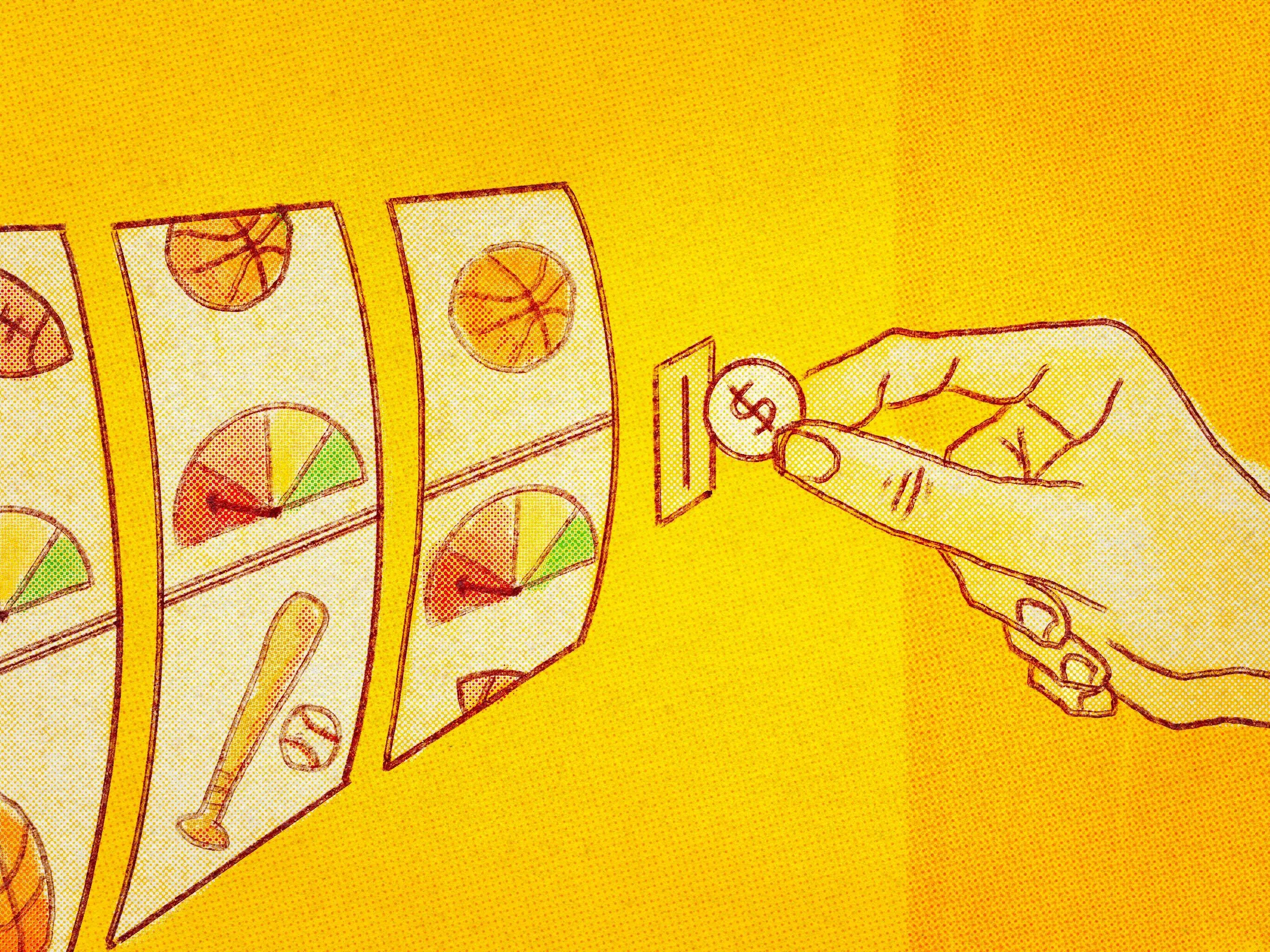The legalization of sports gambling has led to a significant deterioration in consumers’ financial health, particularly in states that allow online betting, new research shows.
“We find a substantial increase in bankruptcy rates, debt collections, debt consolidation loans, and auto loan delinquencies” in states that offer legal sports gambling, researchers from the University of California, Los Angeles and the University of Southern California say in a new working paper. “We also find that financial institutions respond to the reduced creditworthiness of consumers by restricting access to credit.”
Legal sports gambling has proliferated around the country since a 2018 Supreme Court ruling struck down a law banning the practice. Betting on sports is now legal in 38 states, as well as Washington, D.C., and Puerto Rico. Through the first five months of 2024, revenue from sports betting in these areas reached $5.72 billion, an increase of nearly 25% over the same period a year before, according to the American Gaming Association.
One reason states embrace sports gambling is that it allows them to raise tax revenues without angering voters by way of hiking taxes on income or sales purchases. The Census Bureau reported that sports betting generated $505.96 million in state tax revenues in the third quarter of 2023, up 20.5% compared to the same quarter in 2022.
But new research indicates the legalization of sports gambling is proving costly and harmful — especially in states offering online betting rather than just in-person and for young men in low-income areas.
Impact of legal sports gambling on credit scores and more
The working paper’s researchers found that average credit scores dropped 0.3% in states that legalized sports gambling in recent years — a decline they describe as “small but significant.” The impact is particularly severe in places that allow betting on sports with a few quick clicks on a phone or laptop, as opposed to requiring people to place wagers in person. Average credit scores decreased three times as much in states that sanction online or mobile sports wagering.
The availability of online sports gambling has also led to a 28% increase in the likelihood of bankruptcy and an 8% rise in debt collection amounts. Overall, the data suggest that “the ease of access to gambling increases the problems associated with it,” the paper’s authors wrote.
Meanwhile, research from the National Council on Problem Gambling (NCPG) points out that online sports bettors are at heightened risk of addiction. “The rate of gambling problems among sports bettors is at least twice as high as among gamblers in general,” a 2023 report states. “When sports gambling is conducted online, the rate of problems is even higher, with one study of online sports gamblers indicating that 16% met clinical criteria for gambling disorder and another 13% showed some signs of gambling problems.”
As for who is most likely to run into trouble betting on sports, one group is disproportionally impacted: Young men in low-income communities “experience higher financial distress, with higher rates of bankruptcy, more usage of consolidation and unsecured loans, and more credit card delinquencies” than other people in states with legal sports gambling, the working paper says. The credit scores and credit card limits of younger low-income men also decrease the most.
If you have a bad credit score, it can make virtually every aspect of your financial life more difficult. It will be harder to get approved for a mortgage, auto loan or credit card with decent terms, and it may even be a red flag when applying for a job, apartment lease or car insurance coverage.
In other words? The downsides of a gambling habit can go well beyond how much money these young men lose betting on their favorite teams.
More from Money:
‘A Ticking Time Bomb’: Gambling Addiction Is at an All-Time High (and It’s About to Get Worse)
7 Ways to Improve Your Credit Score Right Now
How Much Is an Olympic Gold Medal Worth? Less Than You’d Think










